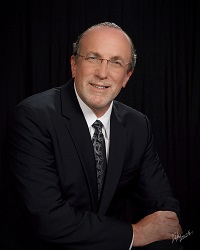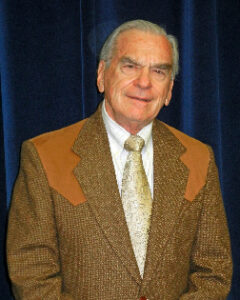When Orthodox Judaism sends its people to oversee conversion programs, they’re not sending their best. They’re not sending you. They’re not sending you. They’re sending people that have lots of problems, and they’re bringing those problems with us. They’re bringing drugs. They’re bringing crime. They’re rapists. And some, I assume, are good people.
If you are a decent looking woman hoping to convert to Orthodox Judaism in California, the odds are about 50% you won’t fall into the hands of a sexual predator who will oversee your conversion in a very hands on fashion.
I don’t know any attractive convert or would-be convert to Orthodox Judaism who’s not had the hard word placed on her by married Orthodox guys (frequently rabbis). There’s a widespread attitude in Orthodox Judaism that if you’re dumb enough to convert, you deserve what’s coming to you. You’ll often see the glint in the Orthodox eye and the smirk across the lips when they spot fresh meat. After all, shiksas are just for practice.
Jews tend to be direct about what they want. One beautiful convert to Conservative Judaism told me, “Jewish guys don’t know their level.” She was amazed by the shleppers who thought they were in her league. A part of her admired their confidence.
On the bright side, very few Orthodox Jews are murderers.
When religious Jews have the opportunity to prowl and perv, they’re like most men in that situation.
If you get raped by someone you meet in shul, don’t be discouraged. Sometimes your rapist won’t be a big donor protected by rabbis. There’s even a chance the rabbi will encourage you to file a police report. Not all synagogues honor donors over decency. Sometimes you’ll walk into a shul and there won’t be a plaque honoring your rapist.
Orthodox rabbis in Los Angeles have formed a cozy little circle. Should divorces not go through their approved rabbinic courts, they’ll organize pickets outside people’s homes, but if conversions are a predator’s paradise, you’ll only hear crickets. Why? Because rabbis have compromising information on each other. Because many rabbis in California have mistresses on the side. Because many rabbis in the conversion business tend to diddle would-be converts.
So why hasn’t the #MeToo movement come for rabbis? Because Jews by and large love their rabbis. Loved rabbis are usually powerful rabbis, and when rabbis prowl, they don’t hunt the best and the brightest. Instead, they focus on the sick and the damaged and who really wants to side with the weak vs the powerful?
Also, Jews tend to be influential storytellers and they don’t like telling stories that made themselves look bad. So while there have been dozens of rabbis abusing kids, this doesn’t get the media attention of predator priests.
A movie called called Untogether came out in 2018. It gives a self-serving presentation of rabbinic predation and Lola Kirke plays a version of author Diana Hochman. Part of the movie was shot at Sinai Temple. One doesn’t have to be a scholar of Talmud to see what might be going on here under the sheets of rabbinic presentation.
According to IMDB.com: “Tara, a massage therapist dating an aging rock star, finds herself inexorably drawn to a newfound religious zeal and, particularly, to a politically-engaged rabbi.”
The rabbi character is modeled on Los Angeles rabbis Sharon Brous, Mordecai Finley and David Wolpe.
Here are deductions from this novel Dispelling the Myth by Diana Hochman:
* The protagonist leaves a party life behind in Los Angeles in her mid-20s and moves to Sacramento to convert to Judaism through the Conservative synagogue Mosaic Law Congregation which is called in the novel Beit Torah Moshe.
* The Rabbi Moshe Bennett character seems to be creatively inspired by Rabbi Emeritus Reuven Taff:
Born and raised in Albany, New York, Rabbi Reuven Taff is the Rabbi Emeritus of Mosaic Law Congregation. Before his retirement, Rabbi Taff was the Rabbi of Mosaic Law Congregation from 1995 to 2020. Prior to his arrival , the rabbi served for seven years as Headmaster of Gesher Jewish Day School of Northern Virginia, the only Jewish Day School serving that suburb of Washington, D.C. From 1974-1985 he served Beth El Congregation in Phoenix, Arizona as Cantor and Director of Education. He also founded and directed Camp Shemesh, a Hebrew-speaking Jewish summer day camp. During the early seventies and eighties, the rabbi served as Rosh Musica (Music Director) at Camp Ramah in Ojai, California.
A trained educator and cantor, Rabbi Taff studied at the Jewish Theological Seminary of America in New York City. He received his B.A. in Religious Studies from California State University, Northridge and holds a Masters of Arts Degree in Teaching (M.A.T.) and another Masters of Arts Degree in Judaica, (M.A.) both from the American Jewish University, formerly the University of Judaism in Los Angeles. He pursued his rabbinic studies at Ohr Torah Rabbinical Seminary in Israel, where he was ordained in 1988. In March of 2017, Rabbi Taff was awarded a Doctor of Divinity (honoris causa) by the Jewish Theological Seminary.
Rabbi Taff’s passion is teaching children and adults of all ages. Outside of his rabbinic and pastoral duties, he is a devoted sports fan and is particularly fond of the Sacramento Kings (especially when they are winning!). In his “spare time”, the rabbi enjoys reading, music, writing and spending time with his wife.
Rabbi Taff oversees her Conservative conversion and even lends her a car when hers is stolen by an angry locksmith the protagonist stopped dating.
* The Saul Sonnenberg character seems to be creatively inspired by this mentch:
After leaving his childhood home in Montreal, Hy Kashenberg traveled and worked in many foreign and American locales before settling in Reno, Nevada more than 30 years ago. A self-taught ‘Renaissance’ man, Hy has been a key leader and benefactor in the business, civic and Jewish communities in his adopted home. Lucky for us, Hy remains a traveling man, and has a home away from home with the Mosaic Law Congregational family. His passion for learning, his business acumen, and his friendship with the Ostrows and Haywards led to his vital role in founding the library and cultural center that bears his name. He considers the KOH LCC at the top of his long list of outstanding accomplishments.
Diana describes meeting an older man at shul who invites her to have a glass of wine at the Hilton. He spikes her drink, drives her to his home in Reno and repeatedly rapes her. Then he drives her home and advises her to not say anything because he gives a lot of money to the shul
Thinking that Orthodox Judaism will be better, Diana moves to Los Angeles. She has an affair with a rabbi who sounds like Rabbi Zvi Bloch, Av Beit Din of Aish Ha Torah of North Hollywood. To get out of that mess, she accepts a scholarship from Richard Horowitz of Aish HaTorah and moves to Israel. That turns out to be a disaster. She’s stuck on a compound in the hills of Judea where the rebbetzin treats the would-be converts like slaves.
Diana flees for Jerusalem, eventually gives up on converting to Orthodox Judaism, and returns to Los Angeles, where she falls in love with Rabbi David Wolpe of Sinai Temple and encounters Jewish Journal columnnist Danielle Berrin.
She visits Mosaic Law Congregation in Sacramento and finds a life-size plaque in honor of her rapist.


